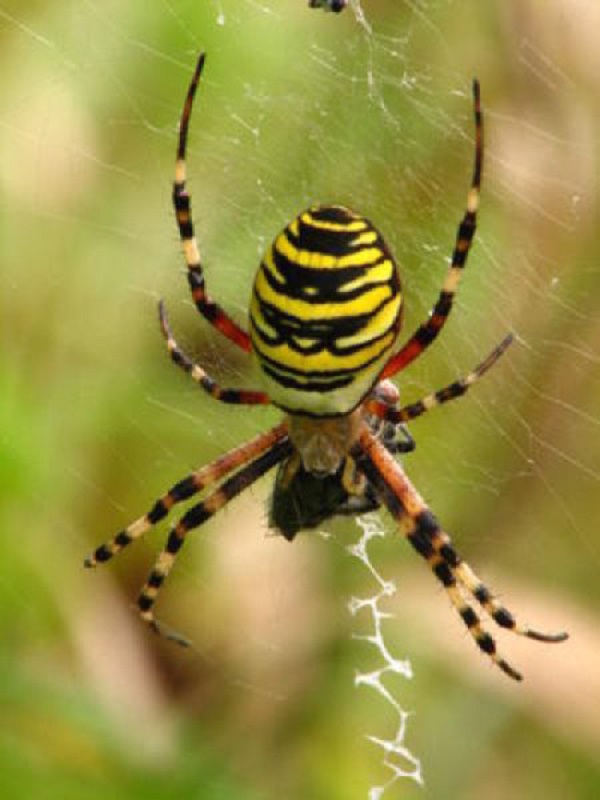Spiders will live in groups if environmental conditions make it too difficult for single mothers to go it alone, new research shows.
It is rare for spiders to live in groups. The arachnids studied for this research build webs that require a lot of silk, making the rainy conditions of the lowland tropical rainforest too adverse for them to live alone. The findings dispute a long-held belief that social groups form merely so individuals can help their kin. Instead it suggests difficult environmental conditions may be the reason why some species live in cooperative social groups and others don’t.
“In all species, family members are closely related, but only in some do they band together to raise each others’ offspring,” said Leticia Avilés, a professor of zoology. “By living in groups, the spiders can occupy spaces that they wouldn’t otherwise be able to, thus helping us understand why animals evolve to be social species.”
Avilés pointed to other animals to support this theory including penguins who are only able to survive extreme cold and winter storms by huddling together. She said this theory could also help explain why single-celled organisms merged together to form more complicated multicellular organisms in our evolutionary history.
For this research, Avilés and graduate student Catherine Hoffman spent time to study Anelosimus spiders and the habitats in which they occur. At higher elevations, where conditions are mild, Anelosimus tend to live in small colonies containing a single family, whereas lower down in the rainforest, where rains are strong and predation high, they live in colonies of hundreds to thousands.
The researchers took spiders living in single-family groups from the higher elevation and transplanted them to the rainforest below to measure how predators and rainfall affected how the spiders lived. They protected some groups from ant predators and others from heavy rainfall that damages their webs. They found that it was these environmental conditions that forced spiders to form larger colonies to help one another.
“The spiders make dense webs that require a lot of silk,” said Avilés. “When the webs get damaged by strong rains or colonies are attacked by predators, some spiders can protect their offspring while others go and make the repairs.” According to Science daily.
N.H.Kh

